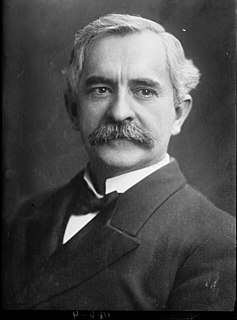A Quote by Robert Frost
If one by one we counted people out For the least sin, it wouldn't take us long To get so we had no one left to live with. For to be social is to be forgiving.
Related Quotes
Forgiving does not usually happen at once. It is a process, sometimes a long one, especially when it comes to wounds gouged deep. And we must expect some lapses...some people seem to manage to finish off forgiving in one swoop of the heart. But when they do, you can bet they are forgiving flesh wounds. Deeper cuts take more time and can use a second coat.
That's an interesting paradox to think about. Make it legal and it's no good. Why? Because as long as it's illegal the people who come in do not qualify for welfare, they don't qualify for social security, they don't qualify for the other myriad of benefits that we pour out from our left pocket to our right pocket. So long as they don't qualify they migrate to jobs. They take jobs that most residents of this country are unwilling to take. They provide employers with the kind of workers that they cannot get. They're hard workers, they're good workers, and they are clearly better off.
You gotta call it out first; it always has to be called out when we need social change, but this is how social change happens: you call it out. People had to call out child labor. People had to call out, 'Hey time's up; we need to vote. We live in this country.' People had to call out 'time's up' on enslaving people, you know.
How many times should you forgive your household bruiser? You should not even think about forgiving him. Not yet. Not as long as he has his foot on your neck. Your problem at this point is not forgiving. Your problem is how to get out of his reach. Once you get away from him, you can think about forgiving him.
Let us strive the more earnestly therefore to lengthen out our span of life-- life that is poured out like water and falls as the leaf-- if not by action (the means to which lie in another's power), yet in any case by study and research; and since it is not granted us to live long, let us transmit to posterity some memorial that we have at least lived.
The Jews are a Distinct Nationality regardless of where they live, their station in life or their shades of belief, and his clarion call to all the Jews in the world to 'organize, organize, organize,' until every Jew in America must stand up and be counted - counted with us - or prove himself, wittingly or unwittingly, of the few who are against their own people.
Repentance out of mere fear is really sorrow for the consequences of sin, sorrow over the danger of sin — it bends the will away from sin, but the heart still clings. But repentance out of conviction over mercy is really sorrow over sin, sorrow over the grievousness of sin — it melts the heart away from sin. It makes the sin itself disgusting to us, so it loses its attractive power over us. We say, ‘this disgusting thing is an affront to the one who died for me. I’m continuing to stab him with it!’
We read our mail and counted up our missions In bombers named for girls, we burned The cities we had learned about in school Till our lives wore out; our bodies lay among The people we had killed and never seen. When we lasted long enough they gave us medals; When we died they said, "Our casualties were low." They said, "Here are the maps"; we burned the cities.
My father left us when I was 10, so I had to make enough money for us to be able to live in a house because my brother went in the service during Vietnam and I was sole support of my mother. And she had no skills, really, except to clean other people's houses. So I had to have a bunch of jobs, you know, as well as music.
Forgiving is love's toughest work, and love's biggest risk. If you twist it into something it was never meant to be, it can make you a doormat or an insufferable manipulator. Forgiving seems almost unnatural. Our sense of fairness tells us people should pay for the wrong they do. But forgiving is love's power to break nature's rule.





































